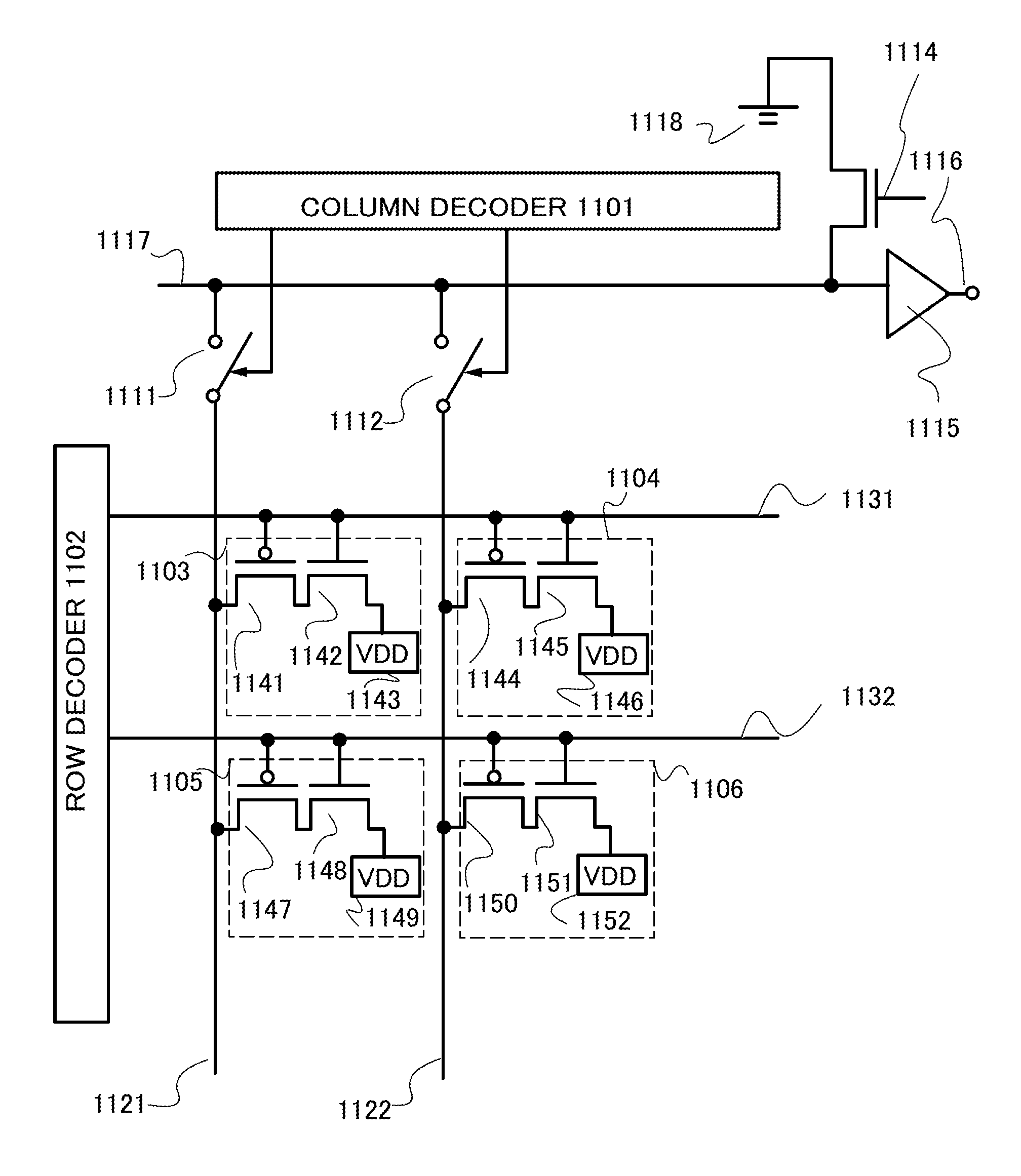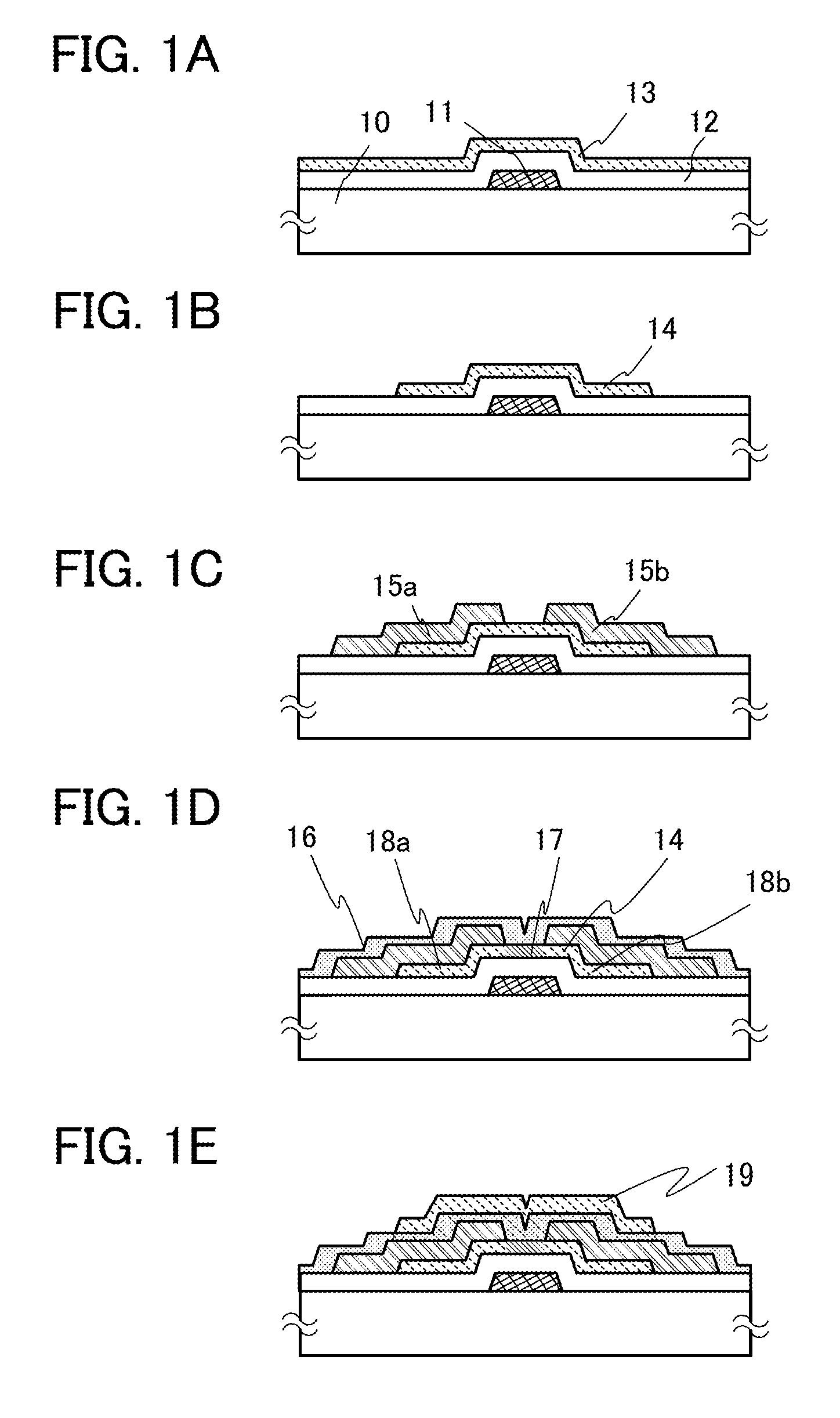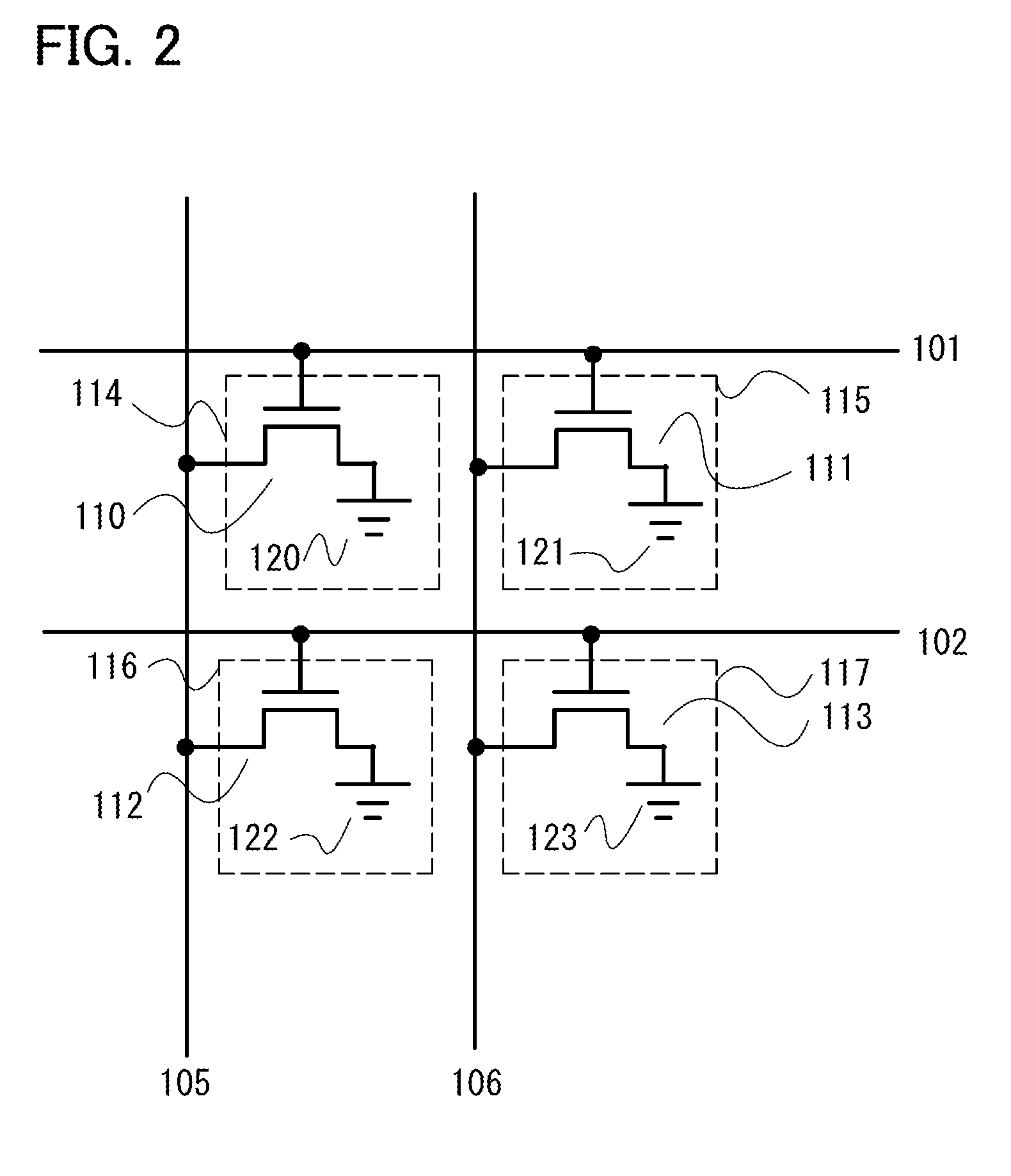Semiconductor memory device
a memory device and semiconductor technology, applied in the direction of read-only memories, semiconductor devices, instruments, etc., can solve the problems of high cost, large area, and relatively long manufacturing steps, and achieve the effects of small area, simple equipment, and reduced manufacturing steps
- Summary
- Abstract
- Description
- Claims
- Application Information
AI Technical Summary
Benefits of technology
Problems solved by technology
Method used
Image
Examples
embodiment 1
[0087]In this embodiment, a semiconductor memory device which is an embodiment of the present invention is described.
[0088]To describe using a thin film transistor is FIGS. 1A to 1E, a gate electrode layer 11 is formed over a substrate with an insulating surface, and then a gate insulating layer 12 is formed thereover. Then, an oxide semiconductor layer 14 is formed thereover, and a source electrode layer 15a and a drain electrode layer 15b are formed over a source portion and a drain portion of the oxide semiconductor layer, respectively. Next, after forming an oxide insulating layer 16, a back gate electrode layer 19 is formed. That is, over a surface of the semiconductor layer that is opposite the side on which the gate insulating layer and the gate electrode layer are formed, an oxide insulating layer and a back gate electrode layer are formed. As opposed to the gate electrode layer applying an electrical field to the semiconductor layer and controlling switching of the semicond...
embodiment 2
[0166]An embodiment in which another thin film transistor is provided inside a bit in addition to a thin film transistor including an oxide semiconductor will be explained. If the thin film transistor including an oxide semiconductor has an n-channel type electrical characteristic, a thin film transistor with a p-channel type electrical characteristic is used, which is the opposite polarity. With the p-channel type electrical characteristic, small current flows between a source and a drain when a positive voltage is applied to a gate electrode layer and large current flows when a negative voltage is applied. That is, it has a switching characteristic, by which an OFF state is obtained when a positive voltage is applied and an ON state is obtained when a negative voltage is applied. Furthermore, the n-channel thin film transistor has the opposite operation where an OFF state is obtained with a negative voltage and an ON state is obtained with a positive voltage. If the thin film tran...
embodiment 3
[0214]This embodiment describes a memory module 1500 to which one of the embodiments 1 and 2 is applied (see FIG. 15). The memory module 1500 includes a first memory cell region 1501, an interface 1503, a row decoder 1504, and a column decoder 1506.
[0215]In the first memory cell region 1501, a plurality of memory cell arrays described in the above embodiments is provided. In a second memory cell region 1502, a plurality of memory cell arrays described in the above embodiments is provided (see FIG. 15).
[0216]The row decoder 1504 corresponds to the row decoder 602 shown in Embodiment 1, for example, and is connected to the first memory cell region 1501 by a word line 1507.
[0217]The column decoder 1506 corresponds to the column decoder 601 shown in Embodiment 1, for example, and has a readout circuit and is connected to the first memory cell region 1501 and the second memory cell region 1502 by a bit line 1509.
[0218]Each of the row decoder 1504, the row decoder 1505, and the column dec...
PUM
 Login to View More
Login to View More Abstract
Description
Claims
Application Information
 Login to View More
Login to View More - R&D
- Intellectual Property
- Life Sciences
- Materials
- Tech Scout
- Unparalleled Data Quality
- Higher Quality Content
- 60% Fewer Hallucinations
Browse by: Latest US Patents, China's latest patents, Technical Efficacy Thesaurus, Application Domain, Technology Topic, Popular Technical Reports.
© 2025 PatSnap. All rights reserved.Legal|Privacy policy|Modern Slavery Act Transparency Statement|Sitemap|About US| Contact US: help@patsnap.com



